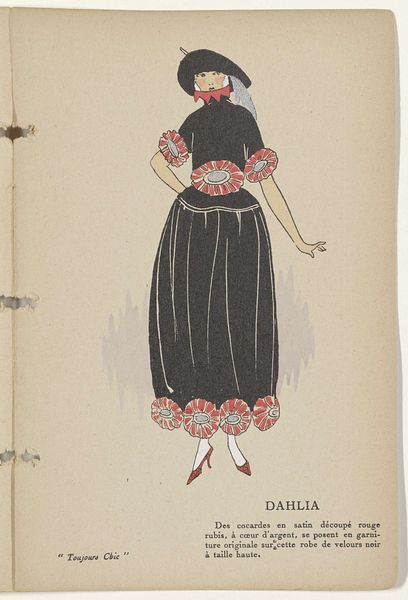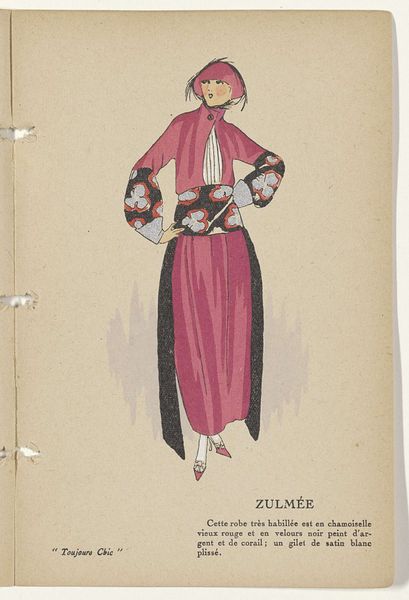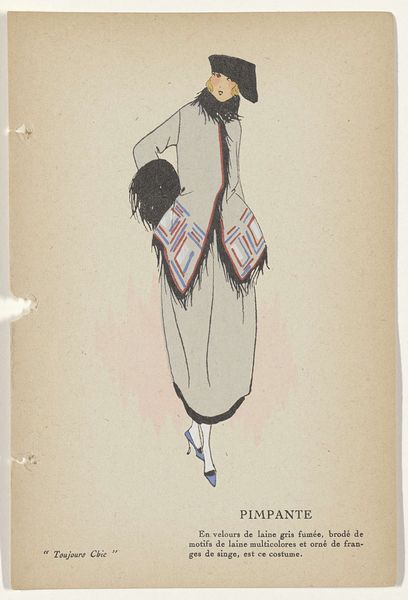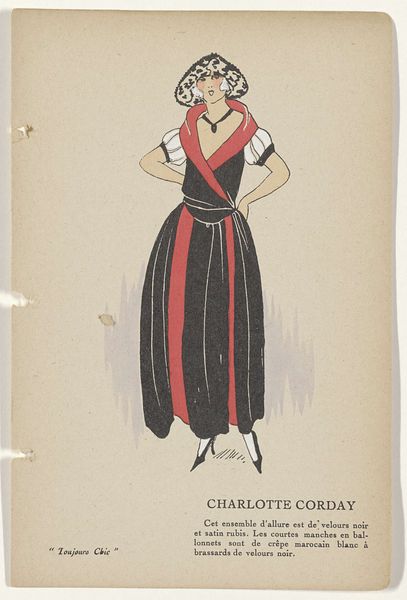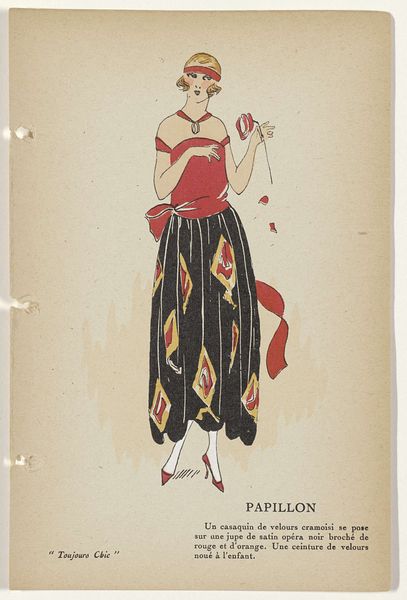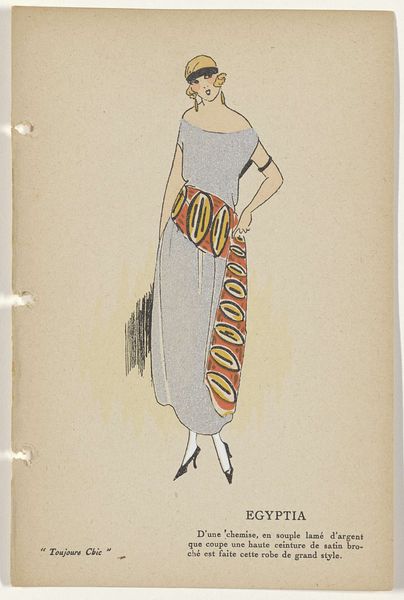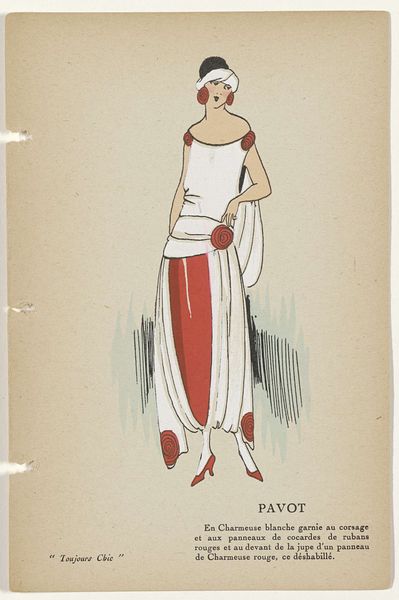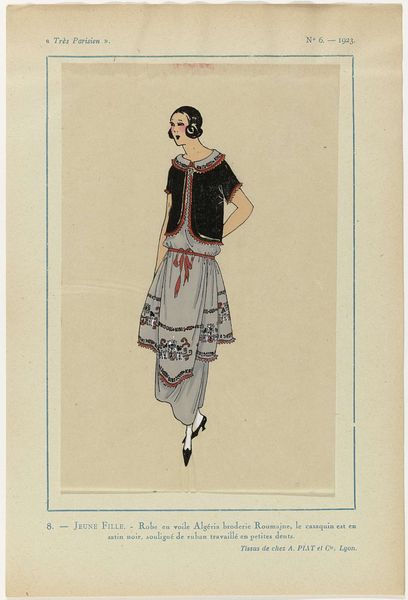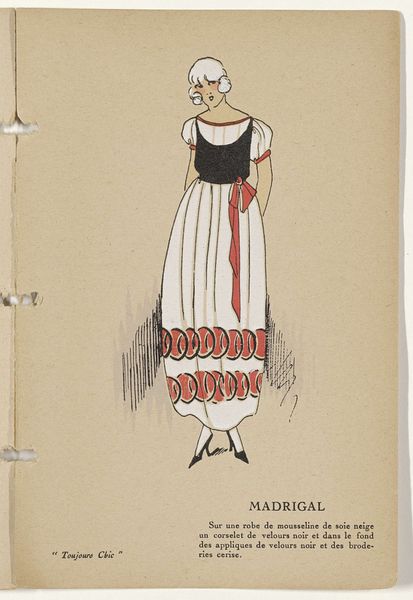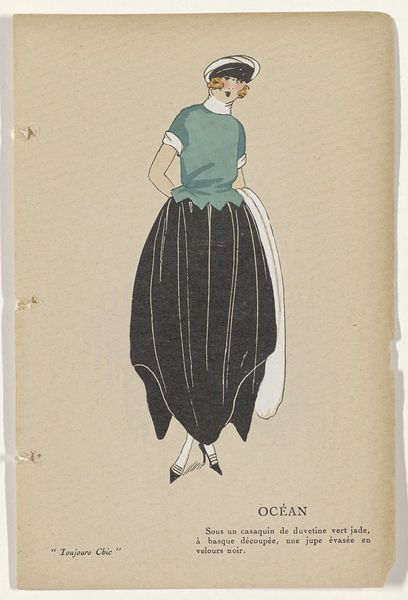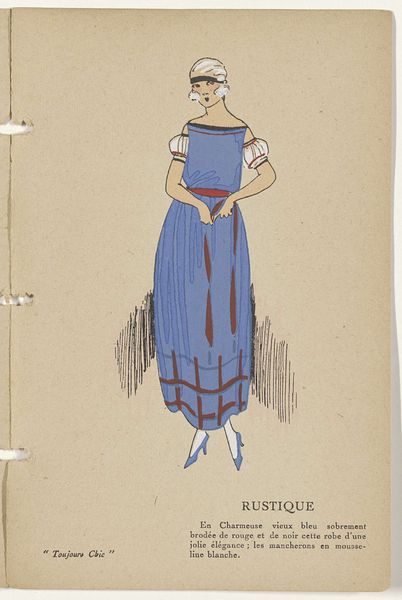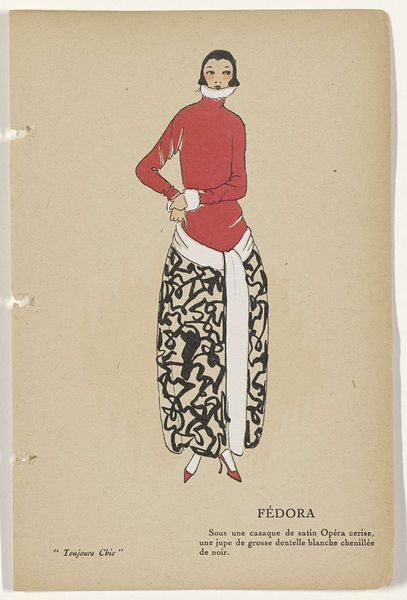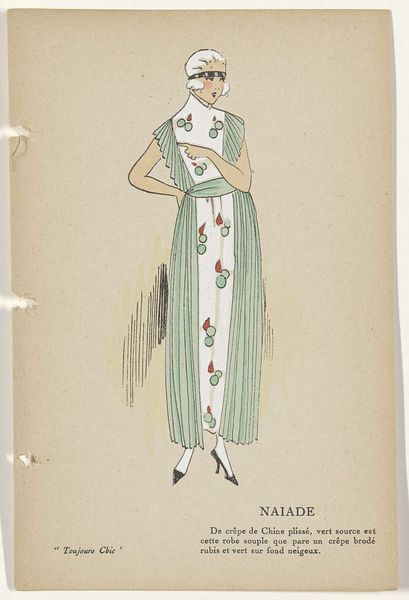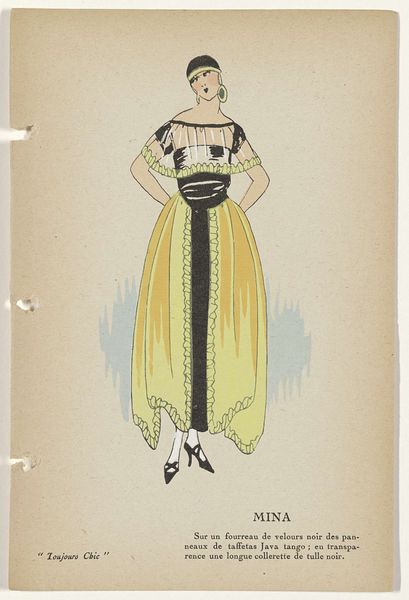
Dimensions: height 180 mm, width 120 mm
Copyright: Rijks Museum: Open Domain
This fashion plate by G-P. Joumard was made circa 1921, using watercolor, gouache, and graphite. It depicts a dress design of black velvet and ivory crepe de Chine. Consider the materials involved, and the labor required to make them. Silk crepe production was already industrialized in the early 20th century, with Chinese silk farms feeding mills in Europe. Velvet, too, while luxurious in appearance, was manufactured in quantity. The relative availability of these textiles allowed for complex designs like this one, with its layered skirt. The fashion plate itself served as a prototype, a vector of industrial production. It reflects the era's changing social norms, as women sought liberation and new styles of dress. Joumard’s design speaks to a rising culture of consumption, where the latest fashions were accessible, at least aspirationally, to a wider public. Looking at this image, we are reminded that even the most ephemeral of designs has roots in very material conditions, and reflects the society that produced it.
Comments
No comments
Be the first to comment and join the conversation on the ultimate creative platform.
